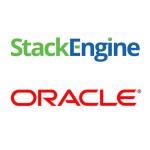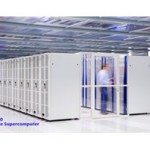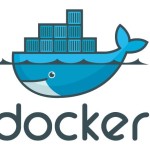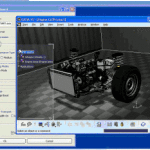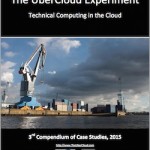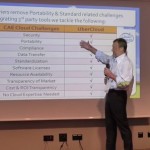Bright Cluster Manager Version 7.2 is out today, a new release that “extends insight, integration, and ease-of-use for managing clustered and cloud-based IT infrastructures.” The new release incorporates a wide range of new features and significantly enhanced monitoring capabilities. “Bright Computing has always prided itself on upgrading its product offerings to respond to new technological trends and user feedback,” said Martijn de Vries, Chief Technology Officer of Bright Computing. “The enhancements we have made in Version 7.2 address recent technology trends, such as the rapid adoption of containers to drive IT efficiency, and support our customers’ ongoing need to stay on top of their dynamic, complex, and converging IT infrastructures.”
Oracle Acquires StackEngine Startup to Automate Docker
On December 18, Oracle closed an agreement to acquire StackEngine, an Austin-based startup focused on Docker automation. All StackEngine employees will be joining Oracle as part of Oracle Public Cloud.
NEC to Build Fastest Supercomputer in Belgium for VSC
Last week at SC15, NEC Corporation announced that the Flemish Supercomputer Center (VSC) has selected an LX-series supercomputer. With a peak performance of 623 Teraflops, the new system will be the fastest in Belgium, ranking amongst the top 150 biggest and fastest supercomputers in the world. Financed by the Flemish minister for Science and Innovation in Belgium, the infrastructure will cost 5.5 million Euro.
Docker Containers Come to Cray XC Software
Today Cray announced plans to deliver an HPC-optimized Docker solution for the Cray XC line of supercomputers. Available in 2016, the HPC virtualization capabilities will be offered for the Cray CS400, Cray XE and Cray XK platforms.
UberCloud Delivers CAE as a Service with Univa Grid Engine Container Edition
Today the UberCloud announced a complete management and execution environment for UberCloud Application Containers powered by Univa Grid Engine Container Edition. Now, popular commercial and open source technical applications are available in ready-to-execute packages of software designed to deliver the tools that engineers need to complete their task in hand.
Agave Platform Provides Science as a Service
Work began recently on the Agave Platform, an open ‘Science-as-a-Service’ (ScaaS) cloud platform for reproducible science. Funded by a $4 Million NSF grant, the Agave Platform will leverage the success of what originated in 2011 as a set of hosted, web-based application programming interfaces (APIs) for plant biologists under the NSF iPlant project.
Univa Grid Engine Adds Docker Support
Today Univa announced the Univa Grid Engine Container Edition, which fully incorporates Docker containers into the Univa Grid Engine resource manager. The Container Edition features the unique ability to run containers at scale and blend containers with other workloads and supports heterogeneous applications and technology environments.
UberCloud Publishes 3rd Compendium of HPC Cloud Case Studies
The UberCloud has published their 3rd Compendium of HPC Cloud Case Studies. Like its predecessors in 2013 and 2014, this year’s edition draws from a select group of projects undertaken as part of the UberCloud Experiment. “Our efforts are paying off. Based on the experience gained over the past several years, we have now increased the success rate of the individual experiments to almost 100%, as compared to 40% in 2013 and 60% in 2014.”
Video: Docker for HPC in a Nutshell
“As the newest flavor of Linux Containers, Docker gained a lot of momentum in the last 12 months. With a very convenient and open API-driven architecture Docker is able to help decrease the complexity of operations and increase the productivity of computation.”
Video: HPC Workloads using Docker
In this video from ISC 2015, Wolfgang Gentzsch from The UberCloud presents: HPC Workloads Using Docker. “The UberCloud Project provides an environment to run HPC workloads on a variety of cloud providers. Wolfgang elaborates on the projects and provides his experience about the roadblocks towards a more flexible cloud-backed HPC future.”


